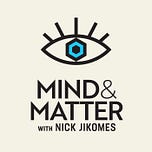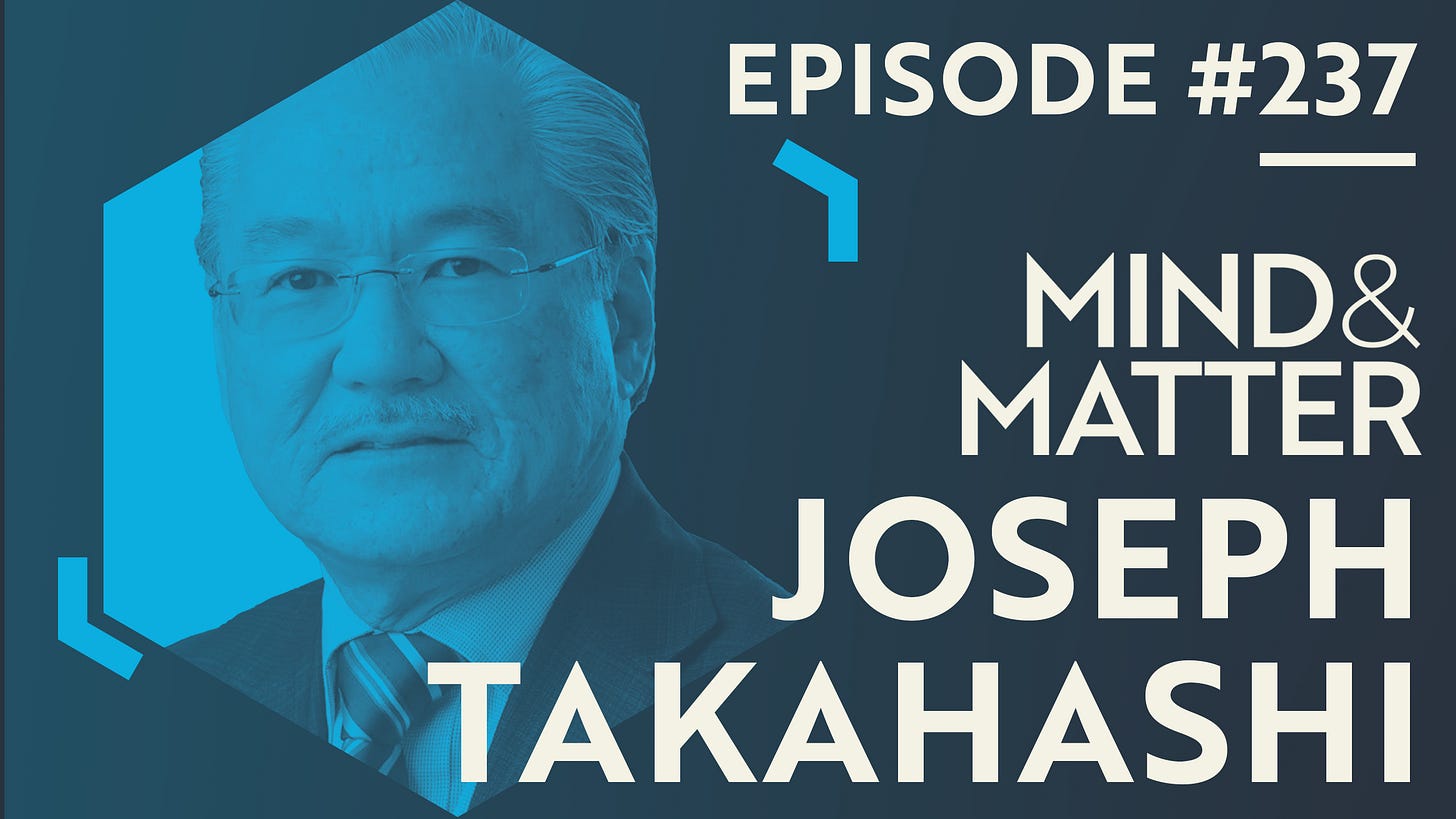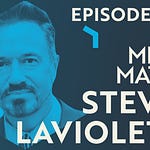Wide release date: July 4, 2025
Episode Summary: Dr. Joseph Takahashi discusses circadian rhythms, exploring their biological basis, from molecular mechanisms to their impact on metabolism and health; the discovery of circadian clock genes; role of the suprachiasmatic nucleus, and how light, feeding, and oxygen influence these rhythms. The conversation highlights practical implications, such as the effects of artificial light and meal timing on health, and touches on emerging research linking stronger circadian clocks to longevity.
About the guest: Joseph Takahashi, PhD is a renowned neuroscientist at UT Southwestern Medical Center, where he leads research on circadian clock genes.
Discussion Points:
The suprachiasmatic nucleus in the hypothalamus acts as the brain's central clock, syncing with light via the retina.
Key circadian genes like CLOCK and BMAL regulate thousands of genes, especially those involved in metabolism, impacting health outcomes.
Internal desynchronization, when brain and organ clocks misalign (e.g., from eating at night), can lead to metabolic issues like pre-diabetes.
In mice, eating at the right time (night for nocturnal animals) extends lifespan by up to 35% under caloric restriction, compared to 10% with spread-out feeding.
Artificial light, especially blue light at night, disrupts melatonin and circadian rhythms, while natural sunlight supports healthy eye development.
Melatonin, a darkness-signaling hormone, is best for resetting rhythms (e.g., jet lag) at low doses, not as a sedative, and U.S. supplements vary widely in quality.
Oxygen-sensing proteins interact with circadian clock components, hinting at links between altitude, metabolism, and health.
Learning and memory show diurnal variations, with better performance at certain times, influenced by circadian modulation of synaptic activity.
A stronger circadian clock, created genetically in mice, led to 16% longer lifespan and resistance to weight gain (unpublished research).
Related episode:
M&M 202: Why Do Animals Sleep? | Vlad Vyazovskiy
*Not medical advice.
Full video version: [YouTube]
Support M&M if you find value in this content.
Episode transcript below.
Episode Chapters:
00:00:00 Intro
00:03:01 Circadian Rhythms & Ecology
00:09:29 Suprachiasmatic Nucleus & Central Clock
00:15:18 Clock Gene Discovery
00:23:23 Molecular Clock Dynamics
00:32:44 Clock Genes & Metabolism
00:41:18 Circadian Mutations & Obesity
00:48:13 Internal Desynchronization & Health
00:56:07 Artificial Light & Photobiology
01:04:06 Melanopsin & Circadian Photoreceptors
01:13:20 Oxygen & Circadian Regulation
01:19:36 Circadian Rhythms & Learning
01:24:49 Morning vs. Evening People
01:29:20 Melatonin & Its Functions
01:39:37 Practical Circadian Health Tips
01:47:07 Boosting Clock Strength & Longevity
Full AI-generated transcript below. Beware of typos & mistranslations!
Listen to this episode with a 7-day free trial
Subscribe to Mind & Matter to listen to this post and get 7 days of free access to the full post archives.













